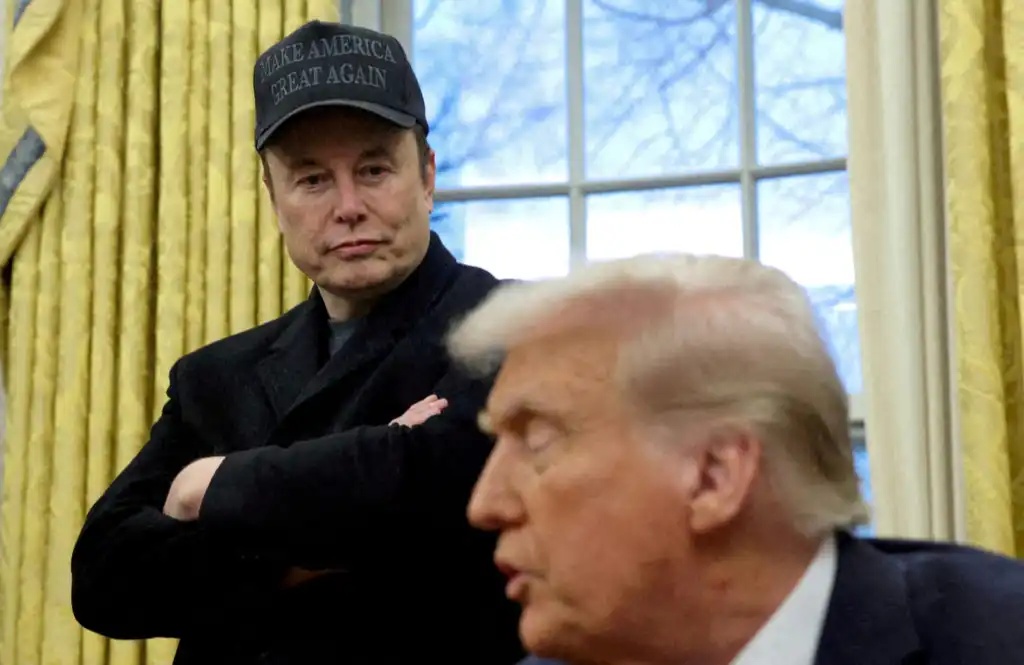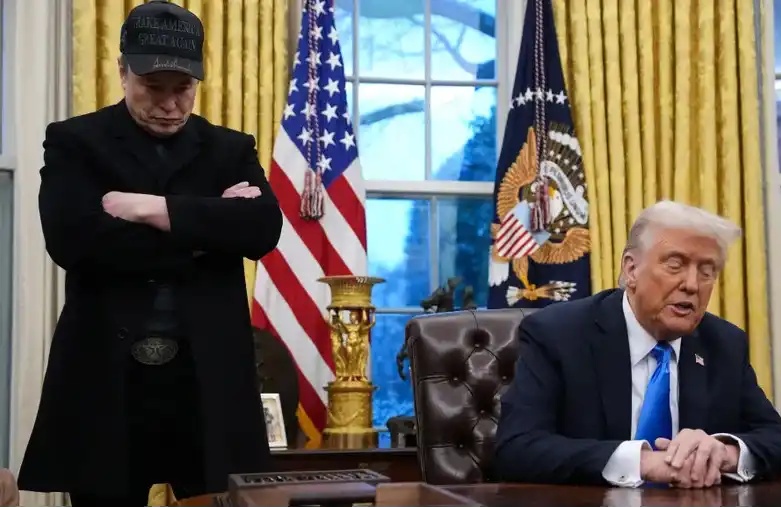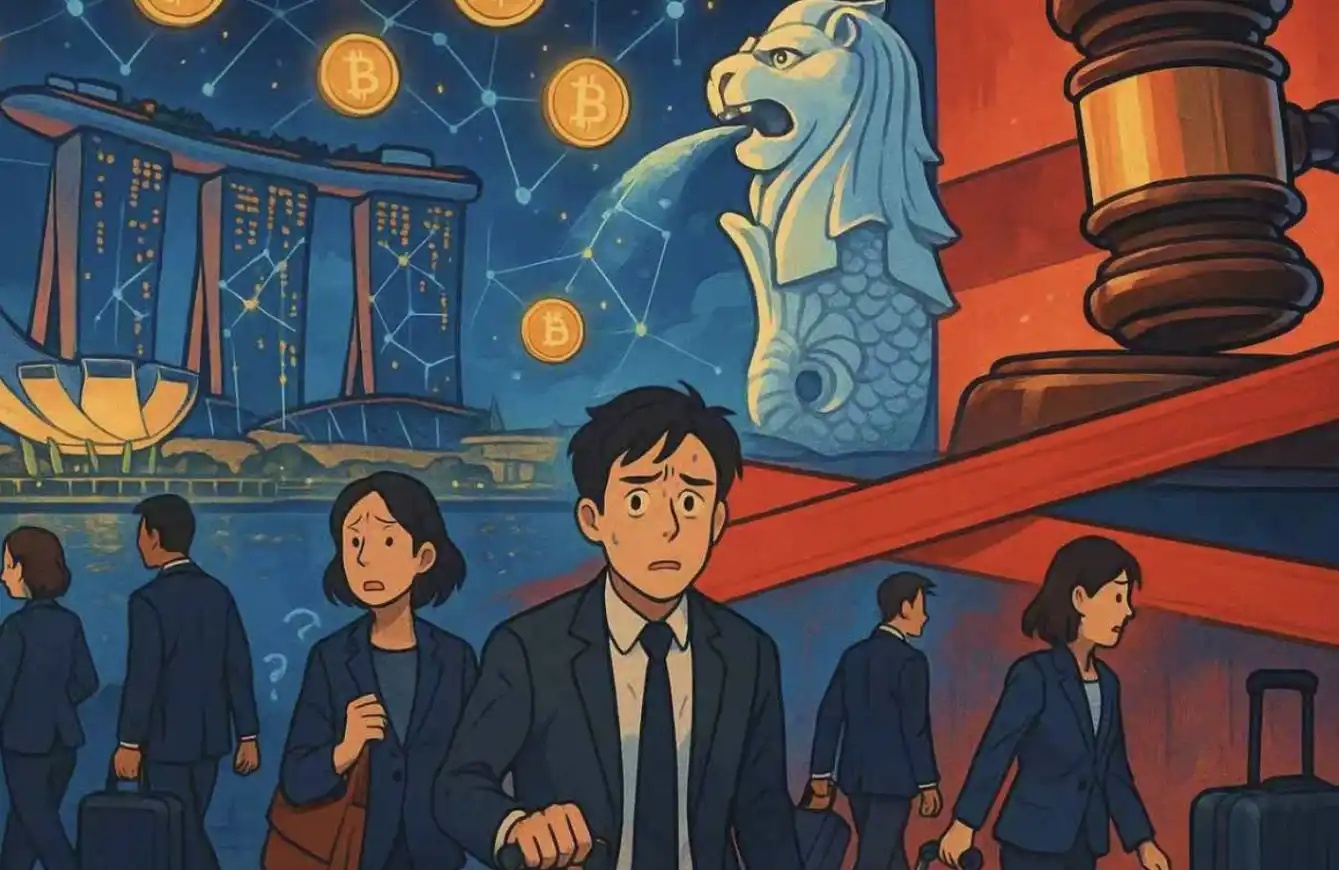Interview with the "1800 Bitcoin" Claimant: The Current State of the Bitcoin Ecosystem
Bitcoin, as the most secure cryptocurrency in terms of consensus, has seen various technological explorations and influx of capital in different directions within a year, driving a brief prosperity but also exposing its underlying complex power play and potential issues. Behind it lies a complex power play among rule-makers and participants. Last week, the Bitcoin staking protocol Solv Protocol ran into a public relations storm due to accusations from a staking whale AZ and the Bitcoin ecosystem project DA Nubit. Controversial topics such as a floor protocol and double pledging quickly became the community's focus of attention.
As a result, BlockBeats engaged in a dialogue with AZ, during which she not only shared her operational logic since joining the circle, but also directly addressed rumors surrounding Solv for the first time, including controversial topics such as a floor protocol and double pledging. This article provides us with a unique perspective on the operations of whale players in the crypto world and project ecosystems, as well as some current situations in the Bitcoin ecosystem, such as agreement transactions between project teams and whale players and gray operations in liquidity management. In this game called consensus, whale players holding the chips engage in a power struggle with project teams setting the rules, while ordinary investors are often forced to become helpless bystanders unable to influence the outcome.
Following the escalation of AZ's rights protection content, it was stated that "if Solv allocates 1% of the tokens, the matter will no longer be pursued." Unfortunately, Solv did not respond, and subsequently released a rights protection token, originally intended to fight for the rights of small retail holders. However, some in the community pointed out that the token had multiple addresses constantly selling without any buy-in, such as the address starting with 0x9D (said by the community to be the address of the on-chain detective Zach), receiving over 33 million tokens that were directly sold for a profit of approximately $250,000. Such occurrences have also sparked widespread discussion in the community about the motivation behind their rights protection actions, and currently, AZ's Twitter account has been suspended by the platform.

The following is the full interview for easy reading:
BlockBeats: Share some of your experience in trading cryptocurrencies
AZ: Let me address one very, very magical rumor first. I was accused of working at a club in Singapore, helping many tycoons manage their Bitcoin, acting as a white glove to generate profits for them. If I really were managing money for many tycoons, how could they allow me to be so high-profile in voicing my opinions online? Either they would have settled things for me through various relationships long ago, or they would have shut me up already; they wouldn't possibly let me prance around online, right?
BlockBeats: When did you enter the circle approximately, and could you briefly share your experience in cryptocurrency trading?
AZ: I bought my first Bitcoin in 2017, and I really didn't trade much. At most, I used it to buy some Dogecoin and popular memes, but I never exchanged Bitcoin for any other currency. I just held onto it without moving.
BlockBeats: So why did you buy Bitcoin in 2017?
AZ: Let's start from 2015. At that time, I caught the first wave of social e-commerce boom. The cost of traffic was very low, almost free, and I made some money from it. However, this ended in 2019. During that time, I often went to Europe to study craft fabrics, but due to the limited RMB foreign exchange quota, fund transfer was always a headache for me. In 2017, a friend of a friend gave me a Bitcoin. I remember his last name was Fan, and we were in Shanghai at that time. After receiving this Bitcoin, I inadvertently found that it was very convenient for fund inflow and outflow. Because of this, I carefully read the Bitcoin whitepaper, and most of the profits were invested in it, which I never touched. I'm really thankful to Satoshi Nakamoto; he made me buy it.

Image Source: AZ's social account
BlockBeats: So are you primarily earning passive income through holding Bitcoin now?
AZ: I also make some project investments, but overall, I am more cautious. However, indeed, I have participated in many projects.
BlockBeats: Is this in your personal capacity?
AZ: I have a fund, and all the investments are made through the fund. There is a team helping me manage it, but it's not very active, without much PR. Besides investing in projects, I also invest in some funds as an LP.
「Hedging Protocols are Very Common」
BlockBeats: As a BTC whale, could you talk about your Bitcoin income management strategy before and after the Bitcoin ecosystem became popular?
AZ: I am a complete newbie when it comes to financial matters, I simply hold my Bitcoin in a cold wallet and never engage in yield farming or put my assets in strange places seeking returns. I have always been very conservative, inactive, and not proactive in seeking investment opportunities. I do not actively look for projects to earn coins as the risk is too high.
Apart from being involved with Solv, I am also running some quant strategies, and I have staked in Babylon as well, I have had conversations with them too. Additionally, I participate in various project protocols and have been involved in various projects.
BlockBeats: How do you view the Bitcoin ecosystem?
AZ: I have always believed in one thing, that the liquidity of Bitcoin will be thoroughly unleashed. This unleashing is not just about price appreciation, but actual applications, such as using Bitcoin as collateral for borrowing while ensuring the safety of the principal, or participating in various on-chain rewards. This market is huge, and it is an issue that needs to be addressed.
During this process, we will see many projects emerge. I cannot directly tell you which project is good or bad because as of now, no solution has truly emerged as an industry standard. What I can say is that I am very much looking forward to this happening, but I also believe that the current solutions are not perfect. In the future, there will definitely be more mature and more perfect solutions that will further drive this market forward.
BlockBeats: What are the playstyles in the Bitcoin ecosystem?
AZ: I think my playstyle is definitely different from others. Those truly skilled whales play exceptionally well, they sign agreements, lock conditions, and after listing, they immediately dump and distribute coins. However, I have indeed not engaged in these operations, I simply participate without utilizing these so-called rules to increase returns; this may also be considered the biggest difference between me and others.
BlockBeats: Is this playstyle a collusion between the project team and whales?
AZ: I am aware that some people sign agreements, but I can't directly issue such agreements as nobody has signed with me. Many smart whales engage in this kind of deal; after all, the whereabouts of the project team's coins are completely opaque, and once listed on Binance, there are so many retail investors waiting to buy in. But I can say very clearly that I have never participated in such operations myself.
If I had actually signed an agreement and received money, I wouldn't be here messing around. Precisely because I have not engaged in these things, believing in the fair distribution by the project team, when I see a significant imbalance in the distribution ratios, I start to question where the remaining coins of the project team have gone. That's why I stand here, hoping to clarify things.
From Good Friend to Advocate: AZ's Perspective on Solv Founder
BlockBeats: How did you come into contact with the Solv Protocol project?
AZ: I've known Solv's founder for quite some time. I met him back in '22 when I first came to Singapore. Initially, a friend organized a dance event here, and we would often hang out together after that.
Last March, we attended a conference in Dubai where Merlin's team was also present. They were one of the earliest teams deeply involved in the BTC ecosystem and had a profound understanding of the field. Solv, on the other hand, was previously working on the GMX system. During that time, we discussed Solv's transformation, primarily focusing on whether Solv should enter the BTC ecosystem. If they decided to pivot, we were all willing to support and encourage them to do so.
I remember it vividly. At that time, Solv's official account posted many messages thanking Merlin's team for their support. Solv's successful transition to the BTC ecosystem and eventual listing on Binance today is closely tied to our support back then.
As for how I came into contact with the Solv project, I knew them even before they became Solv BTC. We were the ones discussing and planning this direction together. Therefore, I believe my contribution to Solv's success in the BTCFi field is significant.
BlockBeats: Have you ever signed a whale profit protection agreement?
AZ: The situation is this—we never signed any agreement between us. Initially, we collaborated on driving this matter forward, and our relationship was more like that of partners rather than clients. Hence, there was naturally no profit protection agreement. Our verbal agreement was straightforward: we would work on this together, share the profits when earned, and the most important thing was to do the job well. Looking back now, it seems like we were completely fooled and received nothing.
However, he did indeed sign profit protection agreements with many whales later on, leading to the dilution of the early participants' interests. After all, initially, we merely verbally agreed to work hard together and share profits, while those who joined later appeared more as clients. As the project party, in order to attract funding from these clients, he undoubtedly needed to offer more compelling terms, such as profit protection agreements.
BlockBeats: Do other projects also have similar situations?
AZ: Before Solv, I had never done anything like this, but after Solv, if someone came to me today asking for funding support, I would be much more vigilant. It's not just about the rug pull protocol; more importantly, it will undergo a comprehensive review of the entire project team's character, integrity, and backgrounds.
BlockBeats: That is indeed necessary.
AZ: We often hang out together, including going to Dubai, going to Korea, dining together, clubbing, and even flying back together. I used to trust him very much, thinking we were good friends.
BlockBeats: Since deciding to participate in this project in March last year, did the project team have any specific requirements or details for large holders throughout the process?
AZ: From day one to now, I can clearly say that all requirements and rules were set by the project team, and I followed them entirely. All these details can be easily found in their tweets and official website. As for those who questioned the cleanliness of my source of funds or accused me of faking TVL, I can only say that all my operations were done according to the project team's rules and requirements. Every transaction is crystal clear and can withstand any scrutiny.
The main requirement the project team had for me was actually quite simple—they wanted me to lock up my Bitcoin liquidity and provide it to them. Initially, they told me this was a three-month project that only required locking the Bitcoin liquidity for three months. At that time, I knew the bull market was about to come, and my original plan was to put that money into Binance for fixed income. But they strongly insisted that I lock it up for three months. Following their request, I provided them with the Bitcoin. However, after three months passed, they kept delaying and completely failed to fulfill their initial promise. This repeated procrastination not only violated the initial trust but also left me very disappointed in their way of operation.
BlockBeats: During the staking period, how often did you communicate with the Solv team, and what were your main discussion topics?
AZ: At the beginning of the staking, Ryan Zhou was very enthusiastic towards me, contacting me whenever there was nothing to explain the project's situation and keep me informed of progress. After staking for about two to three months, it was originally supposed to be listed on Binance but was delayed. During that time, he still often invited me to dinner, go out together, and every time he invited major clients to dinner, he would always invite me. He also came to my house on my birthday, we had longevity noodles together, and he even gave me a YSL bag as a birthday gift.

Image Source: AZ Social Media Account
Our relationship was really good until he committed to a guaranteed return for other whales. I even considered him my best male friend in Singapore and someone I trusted deeply. I would tell him everything, including consulting him before investing in projects to hear his opinions. Then, when Babylon launched, I heard he started signing guaranteed return agreements with others. To fulfill these agreements, he naturally had to dilute my share of the benefits.
BlockBeats: Around what time approximately did this node occur?
AZ: Around October, I guess. I think he knew he was going to be listed on Binance or perhaps he had made too many commitments to others, so he basically stopped replying to my messages. I don't know if he was trying to cut me off, but for someone who had supported him for so long, including someone with such a good relationship, there must have been a reason for him to ignore me, and that's when I felt something was wrong.
BlockBeats: When did you approximately find out about his agreements with other whales for guaranteed returns?
AZ: Some time before the launch of the first phase of Babylon.
BlockBeats: What was your expected return before he engaged with other whales?
AZ: I never felt like I was his client but rather that we had discussed this together. I supported you from day one, so my expectation was certainly not about how much money you would give me, but at the very least to give me a fair and just explanation.
I had been at the top of the leaderboard for the first four months, and it wasn't until the last two months that I was pushed out. I feel it couldn't be only a mere 0.0005%. I wouldn't demand that you give me a specific number of points, but I feel that regardless, you should positively respond to my inquiries. The returns are no longer important to me, and I haven't kept a single cent.
BlockBeats: You transferred these 1800 BTC as mBTC to Solv. What was the situation when you participated in Merlin? Some say you were a single money eating multiple rewards.
AZ: Indeed, I did exchange it for mBTC, and everything was done in a safe and compliant manner. All the funds are completely clean. If someone claims that I am not clean, they can provide evidence. If they say my SOLVBTC is fake, then the real BTC is stored on Merlin.
After Merlin distributed the coins, Solv came into the picture. The original plan was for me to go from Merlin straight to Binance for fixed income, earning 5% APY for 7 months, totaling $4.75 million. It was only because Solv's founder told me how great their project was and how it could generate returns far higher than fixed income that I agreed to extend it by seven more months. However, now they are saying they will give me SOLV tokens worth $500,000, which is not even the remaining fraction from the fixed income. Therefore, the situation of double-dipping does not exist. Moreover, in DeFi protocols, I feel it is perfectly normal to have up to 5 tiers of fees; however, I did indeed not double-dip.
BlockBeats: So, is it true that there is indeed a phenomenon of double collateralization?
AZ: Currently, there is indeed a phenomenon in the market. For example, if I gave my BTC to Solv, it was counted once for rewards, and then some project teams might want to count this TVL again to allocate additional rewards to me. People collaborate in this way. For instance, as long as I gave them the address, they would be satisfied. However, I have never done such a thing. I can show them the transaction records for every penny I've operated with. All the BTC is clean, and I have definitely not engaged in such practices.
BlockBeats: After knowing how your rewards are distributed, did you communicate with other major holders?
AZ: Yes, another major supporter of Solv approached me to ask how this 0.5% was calculated.
BlockBeats: How do you evaluate the Solv project then?
AZ: It all boils down to the project, and the integrity of the founding team is crucial. As for this project, it has been in existence for 4 years, constantly changing direction, and has finally managed to list on Binance. However, what is disappointing is that they chose not to share the benefits with those who supported them from the very beginning.
BlockBeats: Why did you choose to seek justice on Twitter?
AZ: It took me nearly two months to reach out to everyone around me who could find him, his investors, very close friends, or anyone even remotely connected to him. I delivered my message to each and every one of them, hoping he would contact me. But the result is that he never replied, not a single word. In this situation, I really have no other choice. I can only choose to go online and make this matter public.
BlockBeats: So far, has your advocacy on social media achieved the effect you initially wanted?
AZ: If my initial goal was to have this founder address my concerns, it seems that I have not achieved it because he still doesn't address me, and the entire team ignores me. But if we consider this from the perspective of preventing being scammed by this project team, then I think I have achieved it because I have released an AI Rights Protection Agent. With so many blockchain project scams, today it's him, tomorrow it's another one, everyone is scamming, so I think it's very necessary to have an anti-scam Agent.
BlockBeats: After this series of events in the past few days, has the other party responded to your previous demands or shown any change in attitude?
AZ: We had a phone call on January 3, which seemed like we talked a lot, yet it also seemed like we didn't talk about anything. He asked me how I wanted to be compensated now and how much money I wanted. I clearly told him that I would not proactively ask you for a penny. Because I doubt his character, I specifically recorded the call, so if he continues to badmouth me outside, I can release it anytime.
My exact words at the time were: "I will not proactively ask you for a penny. I have contributed so much to this project. It's unfair for you to burn bridges at this point. You should propose a compensation plan, and then I will decide whether to accept it or not."
Later, one of his investors acted as a middleman and suggested giving me an additional 1% of FDV, directly from the team's shares. This investor asked me if I thought it was fair, and I thought it was. After all, my funds occupied 10% of your TVL for a long time, even reaching a percentage in some stages. Based on the 9% airdrop ratio, giving me 1/9 of the FDV is a very reasonable ratio.
But I also made it clear that I would not proactively ask you for this benefit. If you truly want to give it to me, let's discuss it again. That was the entire content of our conversation that time. He promised to call me early the next morning, but until now, I haven't received his call. What's even more outrageous is that he is spreading rumors outside, saying that I asked him for $20 million.
BlockBeats: What is your take on the current public opinion in the community regarding your token issuance?
AZ: First of all, I staked 1800 Bitcoins, and all the rewards from the seven months are donated to the community. I have been transparent since day one of speaking out. Now I don't want any rewards. They have pushed me to the edge, and now all I want to do is spend money to have netizens criticize them, unlike the Solv team, which operates in a sneaky manner.
Furthermore, I believe that a rights protection AI agent is a very necessary presence, especially in an environment like the coin circle where scam projects are rampant. I think there should be a dedicated rights protection track to provide more support to those who have been deceived. AIXBT will only say how good the project is and that it is a project-friendly AI, so I want to create a retail-friendly AI. Regarding this round of rewards, I never intended to take them myself. I must find a way to give these to the netizens who helped me speak out. This can only be achieved through this approach.
I also want to make it clear to everyone that I do not encourage anyone to buy this token. You only need to complete tasks to receive airdrops; there is simply no need to buy. I will buy it myself. Once you receive the airdrop, you can sell it immediately, right? No need to take on additional risks.
Furthermore, I only hold 1% of the tokens. Initially, I reserved 4%, of which 3% has already been transferred to ZachXBT, the Twitter account that inspired me to do this. I also publicly mentioned him (@) and you can check the transfer address. All records are crystal clear and transparent.

Welcome to join the official BlockBeats community:
Telegram Subscription Group: https://t.me/theblockbeats
Telegram Discussion Group: https://t.me/BlockBeats_App
Official Twitter Account: https://twitter.com/BlockBeatsAsia
 Forum
Forum OPRR
OPRR Finance
Finance
 Specials
Specials
 On-chain Eco
On-chain Eco
 Entry
Entry
 Podcasts
Podcasts
 Data
Data


 Summarized by AI
Summarized by AI






